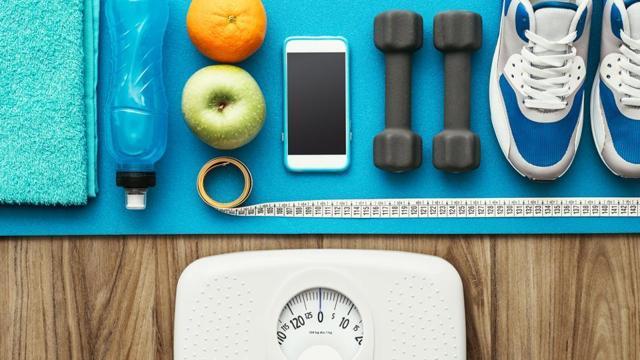This morning beverage can boost your exercise, burn weight faster
While the caffeine boost and diuretic effect of coffee is commonly known, nutritionists tell you if it can actually improve your fitness streak and help you shed those pesky kilos.
If you are a gym-goer, you would have noticed how drinking a cup of coffee in the morning before hitting the treadmill or lifting weights seems to make you stronger and more energetic.

Research supports the claim that coffee can improve your fitness quotient and help you lose weight. A study done by researchers at Coventry University found that a cup of coffee an hour before a competitive running race could improve performance times by 2%. And a 2014 Spanish study, published in the International Journal of Sport Nutrition and Exercise Metabolism, found that trained athletes who took caffeine pre-exercise burned 15% more calories for three hours post-exercise.

“Caffeine triggers serotonin release which may help reduce appetite and delay hunger, which can lead to weight loss. Coffee also increases your energy production, and mental alertness which acts as a pre-workout booster. It also increases fat release which may boost performance and delay fatigue,” explains nutritionist Karishma Chawla.
Coffee stimulates your fat burning capacity. “It affects the rate at which the body burns calories by increasing the BMR (Basal Metabolic Rate) in individuals. The rate of oxidation of fat in normal weight individuals is also greater,” says Mumbai-based nutritionist Hitha Bhankharia.
The beverage also offers indirect fitness benefits. A 2016 research, done by the University of Kent, showed that the reduced perception of effort during exercise after using caffeine helped people stick to fitness plans.

So, should you be adding coffee to your diet plan? Nutritionists advise against it, as it can affect your health in many ways.
“There isn’t sufficient evidence that drinking coffee in the morning leads to weight loss. Studies have shown that drinking coffee can hinder the body’s natural process by decreasing cortisol levels, therefore, increasing your dependency on caffeine/coffee. It also impacts the stomach lining by increasing stomach acids, which cause bloating and indigestion. It may also cause dehydration and affect the pulse rate causing irregular heartbeats,” says Bhankharia.
Chawla says coffee is good only in moderation. “The key is to be on a tailored nutritional plan and exercise regimen and then, consume caffeine in moderation. You should have a maximum of 2-3 cups a day,” says Chawla, who also warns about the presence of caffeine in teas, colas, energy drinks, and chocolates.
Excess of caffeine in the body can cause a host of issues such as insomnia, restlessness, anxiety, increased heart rate and a diuretic effect. “You should avoid caffeine if you are unwell, have any digestive disturbances, suffer from insomnia, have a poor water intake or are taking a multivitamin since it may reduce vitamin absorption in the body,” says Chawla.
Not all coffees are equal in terms of calories though, and that latte or cappuccino may impact your chances of weight loss. “They contain added whipped cream, sugar, and flavoured syrup which makes it high in calories. Instead, make coffee with a combination of water and 1 tbsp skim milk without sugar,” says Bhankharia.
And if you really need a fitness drink, Bhankharia suggests one of the simplest options: “Always begin the day with 1–2 glasses of water.”
Follow @htlifeandstyle for more
Catch your daily dose of Fashion, Taylor Swift, Health, Festivals, Travel, Relationship, Recipe and all the other Latest Lifestyle News on Hindustan Times Website and APPs.
Catch your daily dose of Fashion, Taylor Swift, Health, Festivals, Travel, Relationship, Recipe and all the other Latest Lifestyle News on Hindustan Times Website and APPs.






